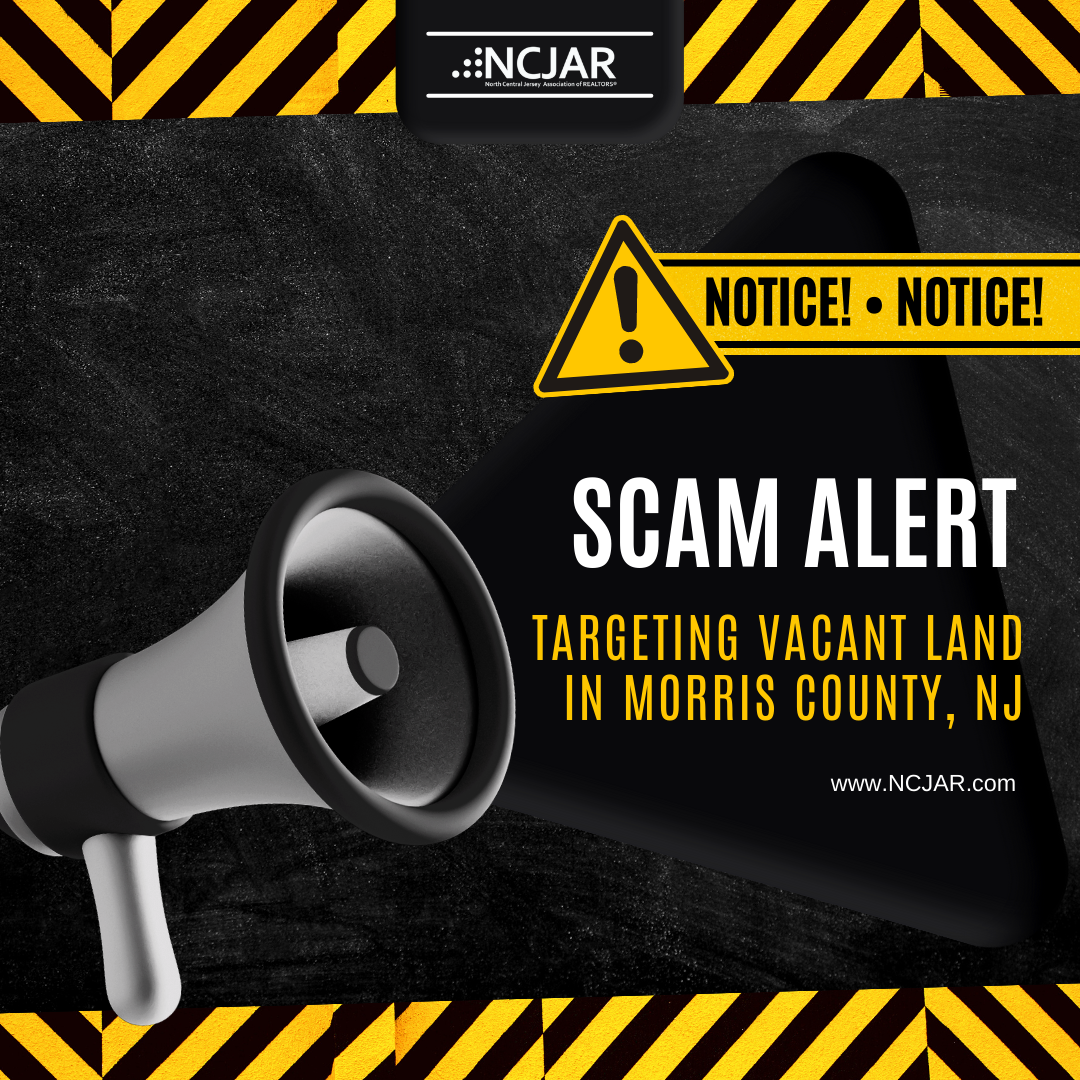 As a Realtor®, your top priority is to provide exceptional service to your clients and facilitate successful real estate transactions. However, in the digital age, scammers are becoming increasingly sophisticated in their attempts to defraud unsuspecting professionals like you. Recently, two North Central Jersey Association of Realtors (NCJAR) brokers were targeted by a scammer who sought to take advantage of their expertise. It is crucial for all real estate agents, especially those operating in Morris County, NJ, to be vigilant and informed about such fraudulent activities.
As a Realtor®, your top priority is to provide exceptional service to your clients and facilitate successful real estate transactions. However, in the digital age, scammers are becoming increasingly sophisticated in their attempts to defraud unsuspecting professionals like you. Recently, two North Central Jersey Association of Realtors (NCJAR) brokers were targeted by a scammer who sought to take advantage of their expertise. It is crucial for all real estate agents, especially those operating in Morris County, NJ, to be vigilant and informed about such fraudulent activities.
The Scam
The scammer in this case reached out to NCJAR brokers, claiming to have vacant land available for sale in Morris County, NJ. The scammer insisted on selling the property quickly and at a surprisingly low price. To add an air of legitimacy, they provided the broker with the owner's identification information, which they might have obtained through various illicit means.
Red Flags to Look Out For
- Unrealistic Offers: Be cautious of sellers who insist on selling their property well below market value or claim they need to close the deal urgently.
- Out-of-State Owners: Scammers often use out-of-state owners to hide their true identity and make it harder for you to verify the property's legitimacy.
- Pressure to Act Fast: Scammers might use high-pressure tactics to push you into making hasty decisions before you have a chance to investigate further.
- Email Communication: Be cautious of sellers who only communicate via email and avoid phone calls or in-person meetings.
- Unusual Transaction Requests: Stay alert if the seller requests payments through unconventional means or tries to avoid standard real estate procedures.
Protect Yourself and Your Clients: Tips for Avoiding Scams
- Verify Identity and Ownership: Always perform your due diligence by verifying the seller's identity and ownership of the property. Request a virtual meeting if an in-person meeting is not possible and ask the seller to provide a government-issued ID during the video call.
- Cross-Check Information: Check County records and official databases to confirm the true owner of the property. Scammers might use stolen or fabricated information.
- Meet Face-to-Face: Whenever possible, try to meet the seller in person. This can help you gauge their legitimacy and build trust.
- Educate Your Clients: If you come across any suspicious activity, educate your clients about potential scams and warn them about sharing sensitive information without proper verification.
- Report Suspected Scams: If you encounter a scammer or believe you are dealing with a fraudulent seller, report it to NCJAR so we can inform our members, and relevant authorities like the Federal Trade Commission.
It's essential to remain vigilant against scammers. By following these precautions and staying informed, you can protect yourself, your clients, and the integrity of the real estate profession.
Remember, if something seems too good to be true, it probably is. Trust your instincts, do your research, and prioritize the safety and security of your clients and your business. Always prioritize your safety and the safety of others by promptly reporting any suspicious or fraudulent activities you come across. Together, we can create a safer real estate environment for everyone involved. Stay cautious, stay alert, and stay scam-free!